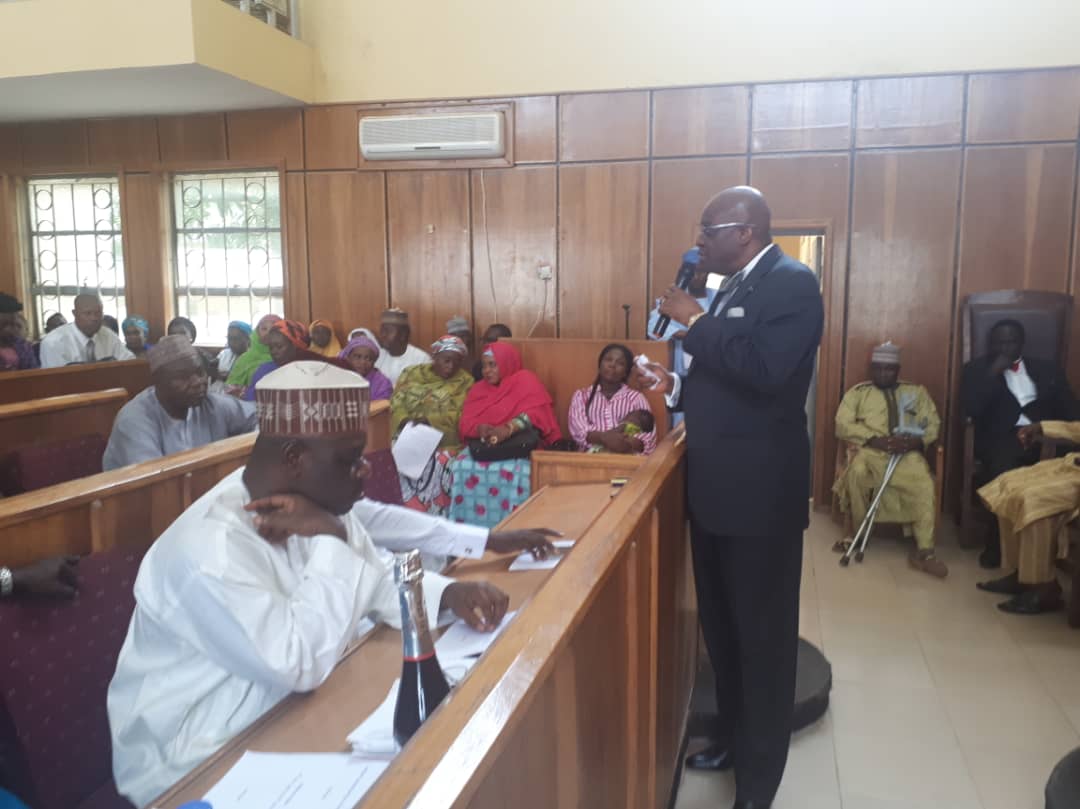
INSTITUTIONAL DEVELOPMENT
I believe that the NBA, at the national level, is in need of urgent and far-reaching reforms if it must retain its relevance not only in the larger society but even to its members. These reforms will, at the minimum, achieve four significant and immediate goals, to wit, (a) enhance efficiency in the operations of the Association; (b) engender confidence and trust amongst its members (or, as some would say, win back the confidence and trust of members who are disengaged); (c) transform the NBA into a sustainable institution; and (d) increase the moral equity of the NBA to enable it effectively influence required reforms in the justice subsector and remain a respected watchdog of the society.
As my set-out point, it is my position that no institution or organization can be deemed or classified as successful if it fails to adhere to corporate governance principles, the cornerstones of which are transparency and emplacement of established and well-defined processes and procedures coupled with strict adherence thereto. The NBA, as currently constituted and operated, lacks these basic ingredients and characteristics of an institution – and this has been confirmed by the recent KPMG Diagnostic Report on the NBA. In driving the goal of building an institution out of the NBA, we need to entrench these governance principles and thereby not only guaranty efficiency in the administration of the Association but also boost the confidence of our Members and external stakeholders. Entrenching these principles will also clothe us with the moral toga to challenge and speak truth to power, particularly in instances of financial and/or administrative malfeasance, misappropriations and misconducts.
The specific programme strands that shall enable me deliver on this agenda, if elected as President of the NBA, shall include the following:
I. Professionalize and strengthen the NBA National Secretariat for effective and efficient service delivery so as to meet the needs of our members and the public. The required reforms in the NBA must logically start from its apex, to wit, the governance structure at the national level. The operational complexities of the Association in 2018 justify the delegation of day-to-day operations and management of the NBA by the elected part-time National Officers to an executive management team made up of suitably qualified, skilled and experienced full-time personnel.
II. Entrench Corporate Governance in Financial Management: Without financial planning and accountability, a Bar Association will fail to function. We will therefore ensure a complete overhaul of the account and finance unit at the NBA National Secretariat with proper definition of the unit’s role and the engagement/retention of qualified, experienced, well-motivated and skilled accountants to man the unit. We would also institutionalize internal control systems and processes. The essence of internal control systems and processes is to prevent leakages and fraud and to bullet-proof the organization against identified risks. To enhance the Association’s corporate governance in financial management we would constitute a Standing Audit Committee of the Association that would, amongst others, assist in reviewing and monitoring the efficacy of and compliance with our internal control systems and processes. Budgeting and budget reviews will also be made standard practice and quarterly financial statements would be routinely published to members to inform on the Association’s financial health. Transparency would be the watchword in the management of the Association’s resources including its finances and assets.
III. Upgrade and improve the operational capacity of NBA Sections, Institutes, and Fora so that they would be able to fulfil their mandate. Generally speaking, the NBA organs operate at sub-optimal levels. Well organised and run, these organs should serve, amongst others, as the engine-room for planning the contents of and for the Annual General Conferences (AGC) of the NBA. These organs offer opportunities for members to deliberate on topical issues and raise the bar in advancing the course of specialisation within the NBA. They therefore constitute a veritable NBA resource for planning our AGCs, content-wise in particular. In addition, the various committees of our Sections ought to be hosting, on regular basis and annually, workshops and seminars in their respective specialized fields. Best practice also recommends that some of the committees collaborate to host such workshops where the topics are common to and touch on the specialised fields of such committees. In summary, the NBA organs as currently constituted would be deepened and made to achieve much more in terms of structure, activities, inclusion, outreach, communication, and evaluation.
IV. NBA Strategic Plan. We would review, update and ensure the implementation of the NBA Strategic Plan to ensure continuity and sustainability of programmes, policies and projects. There was a Strategic Plan that was approved by the NBA National Executive Committee (NEC) at its meeting at Aba in March 2017 but I am not aware that there has been a monitoring of its implementation. Well-run institutions routinely monitor the implementation of their Strategic Plans during the quarterly meetings of their directing organs – i.e. the Board of Directors or its equivalent. NEC is the NBA equivalent of a Board of Directors and it does not appear that the monitoring of the Strategic Plan is a staple on its quarterly agenda. That would be corrected in my tenure as the President and the Strategic Plan itself would be reviewed, widely circulated and published and made to incorporate long, medium and short term plans, complete with measurable milestone activities and timelines.
PAUL USORO, SAN, FCIArb
(To be continued)
